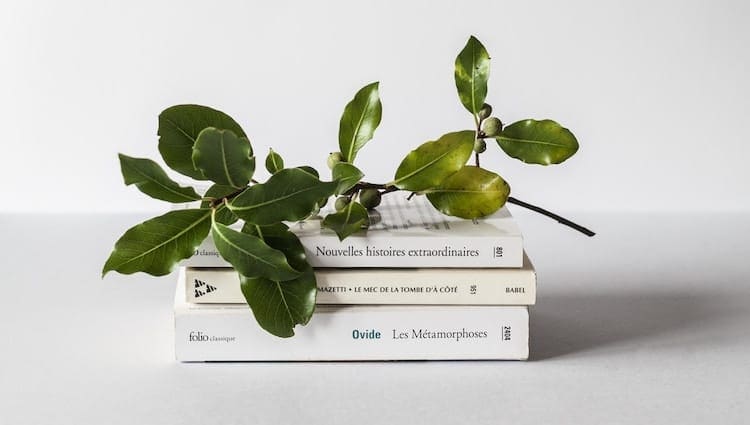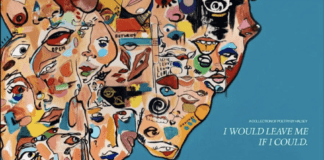
Unlocking the world of translated poetry may feel out of your comfort zone, but closing the gap will open your whole poetry world.
Reading poetry in translation is important. Incredibly important. Not only you are deepening your nourishment by exploring art from around the globe, but you are also actively participating in the diversification of the canon.
When we think of or read poetry in schools, we are largely exposed to American or English poets — and while there is so much wonderful poetry (in addition to a multitude of cultures and sub-cultures) within this area of literature, there’s so much more to poetry. We must read poets of color from across all continents, not just Europe and America. We must read translated works that we’d otherwise have no exposure to. Not only, in this effort, do we celebrate the poet but the glorious art of translation.
As Banipal, the magazine of modern Arabic literature says, “…dialogue between different cultures need to be continually deepened; and that the joy and enlightenment to be gained from reading beautiful and imaginative writing an integral part of the human existence.”
In short, you don’t have to be a polyglot to enjoy poetry from around the world. Obviously, reading a poem in a different language and hearing its original and unique music is a gift. For the rest of us mere mortals, translation is the next best option.
There are also a lot of journals that want to publish translated works, so if you’re writing poetry in translation, check out a few of the below journals. And, if you’re interested in supporting interlingual presses, there are many. Action Books, Ugly Duckling Press, and Akashic Books are just a few.
Here are a few to start you on your journey (and even more in this thread on translated works I initiated on Twitter).
Asymptote
From the editors: “Asymptote is the premier site for world literature in translation. We take our name from the dotted line on a graph that a mathematical function may tend toward, but never reach. Similarly, a translated text may never fully replicate the effect of the original; it is its own creative act.”
You can read all of their work (all in translation) here.
Cart Blanche
From the editors: “We accept English translations of poetry, fiction, and nonfiction written originally in French. If possible, please include the original work on which the translation is based. If we like your piece and choose to publish it, you will be required to provide proof of permission from the copyright holder of the original work to translate and publish the translation. Obtaining permission can take time, so please do so before you submit!”
You can read their translations here.
Tupelo Quarterly
From the editors: “Tupelo Press discovers luminous writers, gives each author the vessel of a beautiful book, and shares their passions with as many readers as possible. Tupelo’s list speaks to the diversity of influences upon contemporary art and culture, and the Press takes a keen interest in promoting a dialogue between the written and fine arts.”
Tupelo Quarterly has a translation section in every single issue; they also have three translation editors on the masthead. You can read their translations here.
The Offing
From the editors: “The Offing actively seeks out and supports work by and about those often marginalized in literary spaces, including Black and Indigenous people, and people of color; trans people, cis women, agender, gender non-conforming, genderqueer, two-spirit, and non-binary people; intersex people; LGBQA (lesbian, gay, bisexual, queer, asexual/aromantic) people; people with disabilities; and especially people living at the intersections of these identities.”
Editor-in-chief Mimi Wong states, “The Offing has a department dedicated to Translation!” You can read their translations here.
Puerto Del Sol
From the editors: “Puerto del Sol, now in its 53rd year of publication, is published by MFA candidates atNew Mexico State University. For half a century, Puerto del Sol has been dedicated to providing a forum for inventive and fresh fiction, poetry, reviews, criticism, and artwork from emerging and established writers and artists. We recommend purchasing our current issue or exploring our online content to get a better idea of the kinds of work we publish. Thank you for your interest in our magazine, and we look forward to reading your work.”
You can read the magazine and its translated pieces by ordering it here.
The Massachusetts Review
From the editors: “The Massachusetts Review, a literary magazine, promotes social justice and equality, along with great art. Committed to aesthetic excellence as well as public engagement, MR publishes literature and art that provokes debate, inspires action, and expands our understanding of the world around us.”
You can read the magazine and translated pieces here.
A Public Space
From the editors: “….It has been our mission to seek out overlooked and unclassifiable work, and to publish writing from beyond established confines. Subscribe today, and join the conversation.”
You can read their pieces here. Translated works are found throughout their many issues.
Banipal: Magazine of Modern Arabic Literature
From the editors: Banipal magazine showcases contemporary Arab authors in English translation, from wherever they are writing and publish.
Focused on international dialogue, keeping this magazine on your to-read list will enrich your life with voices you may not be ordinarily exposed to. You can read their issues here, all of which are in translation.














